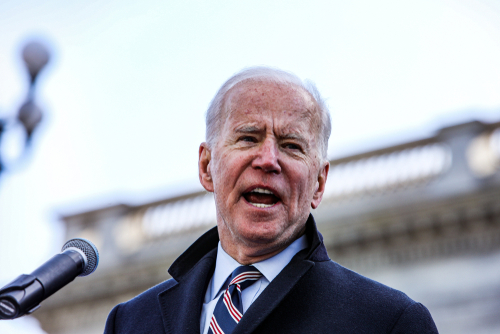Listen To Story Above
Global markets reeled on Monday as Chinese stocks experienced their most severe single-day decline since the 2008 financial crisis, with the Hang Seng Index plummeting more than 12% and the CSI300 blue-chip index falling 7.05%. The dramatic downturn came in response to escalating trade tensions between Beijing and Washington, sparking concerns about an impending global trade war.
The Chinese government recently announced a comprehensive 34% retaliatory tariff on all U.S. imports, scheduled to take effect on April 10. This move follows President Donald Trump’s administration’s implementation of reciprocal duties on China, intended to address trade inequities and shield American industries.
The CCP’s Ministry of Finance released a statement, which when translated via Google, stated:
> On April 2, 2025, the US government announced the imposition of “reciprocal tariffs” on Chinese goods exported to the US. The US practice is inconsistent with international trade rules, seriously undermines China’s legitimate rights and interests, and is a typical unilateral bullying practice that not only undermines the interests of the United States itself, but also endangers global economic development and the stability of the production and supply chain.
Japan’s stock market just plunged nearly 9% in a single day. Their Prime Minister is now preparing to visit US to negotiate directly with President Trump.
At the same time Trump is holding the line on China refusing to lift tariffs until the $1 trillion trade deficit is… pic.twitter.com/znoIrRYpcH
— Rav (@_MrDecentralize) April 7, 2025
The Ministry further elaborated that under various Chinese laws and international principles, they would implement a 34% tariff on U.S.-originated imports starting April 10, 2025. They specified that goods dispatched before the deadline and arriving between April 10 and May 13, 2025, would be exempt from these additional charges.
President Trump responded swiftly on Truth Social, declaring “CHINA PLAYED IT WRONG, THEY PANICKED — THE ONE THING THEY CANNOT AFFORD TO DO!”
The market impact was severe, with the Hang Seng Tech Index suffering a 16.29% decline. Major tech corporations felt the blow, as Alibaba and Tencent shares dropped over 10%. Banking giants HSBC and Standard Chartered weren’t spared, recording losses of 13% and 16% respectively.
WATCH: China announced additional tariffs of 34% on US goods, the most serious escalation in a trade war with President Donald Trump that has fed fears of a recession and triggered a global stock market rout https://t.co/5fpvEmHbaZ pic.twitter.com/W6uAdFVDye
— Reuters Business (@ReutersBiz) April 4, 2025
CNBC reported:
> Still, they noted that Asian markets are the worse hit. They estimate that China and Vietnam will experience losses exceeding 0.5% of GDP, while the European Union and Japan face a hit of around 0.3% to 0.4% of GDP.
The ripple effects extended to U.S. markets, with futures declining as hopes for successful trade negotiations diminished. Energy markets also suffered, with U.S. oil prices falling below $60 per barrel, reaching $59.74 – levels not seen since April 2021.
Despite market turbulence, Trump’s economic advisers maintained their stance, asserting that the tariffs would remain in place regardless of market reactions, while dismissing concerns about potential inflation or recession.






